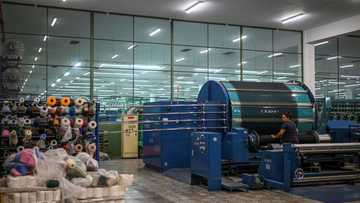Roma inclusion in Europe 'too slow': study

Source: AFP
PAY ATTENTION: Click “See First” under the “Following” tab to see Briefly News on your News Feed!
Deplorable living conditions, gloomy prospects at school and at work: the situation of Roma communities in Europe has not improved despite EU objectives to facilitate their integration, a report by the bloc's rights agency said on Tuesday.
Across Europe, Roma continue to "face shocking levels of deprivation, marginalisation and discrimination," said Michael O'Flaherty, director of the Vienna-based European Union Agency for Fundamental Rights (FRA).
National policymakers should "focus resources and efforts on addressing the intolerable plight", he added in a press release.
The FRA report, which is based on nearly 8,500 interviews with Roma in ten European countries, says progress on Roma inclusion has been "too little and too slow" since the last survey six years ago.
According to the findings, 80 percent of Roma still "remain at risk of poverty," compared with an EU average of 17 percent. This figure has remained unchanged since the 2016 study.
The figures on education are striking: 71 percent of young Roma aged 18–24 leave the education system early, compared to only 10 percent of those in the general population in the EU.
PAY ATTENTION: Follow us on Instagram - get the most important news directly in your favourite app!
Among those who attend school, many children aged between six and 15 are in a segregated school -- 52 percent compared to 44 percent in 2016 -- especially in Slovakia and Bulgaria.
Damp and dark housing
"Many countries are still not reaching the milestones set under the EU's 10-year plan for Roma" that runs until 2030, the FRA said.
It warned the ripple effects of the Covid-19 pandemic and soaring inflation could further harm Roma communities especially.
Approximately 43 percent of the Roma surveyed were in paid work, well below the European average of 72 percent for 2020.
The study also found that Roma women have a life expectancy of 71 years and men 67 years, compared to 82 and 76 years respectively for the EU's population as a whole.
More than half of the Roma interviewed for the survey live in housing that is damp and dark or lacks proper sanitary facilities, compared to 61 percent in 2016, while 22 percent have no running water, down from 30 percent.
While lamenting the lack of "real improvements when it comes to tackling discrimination", the survey findings indicate "a positive development in tackling hate-motivated harassment and violence".
The report is based on a survey conducted by the FRA in 2021 among Roma in Croatia, the Czech Republic, Greece, Hungary, Italy, Portugal, Romania, Spain, as well as in North Macedonia and Serbia, which both seek accession to the EU.
In Bulgaria and Slovakia, data was collected by national authorities, with support from the FRA.
PAY ATTENTION: Сheck out news that is picked exactly for YOU ➡️ find the “Recommended for you” block on the home page and enjoy!
Source: AFP



